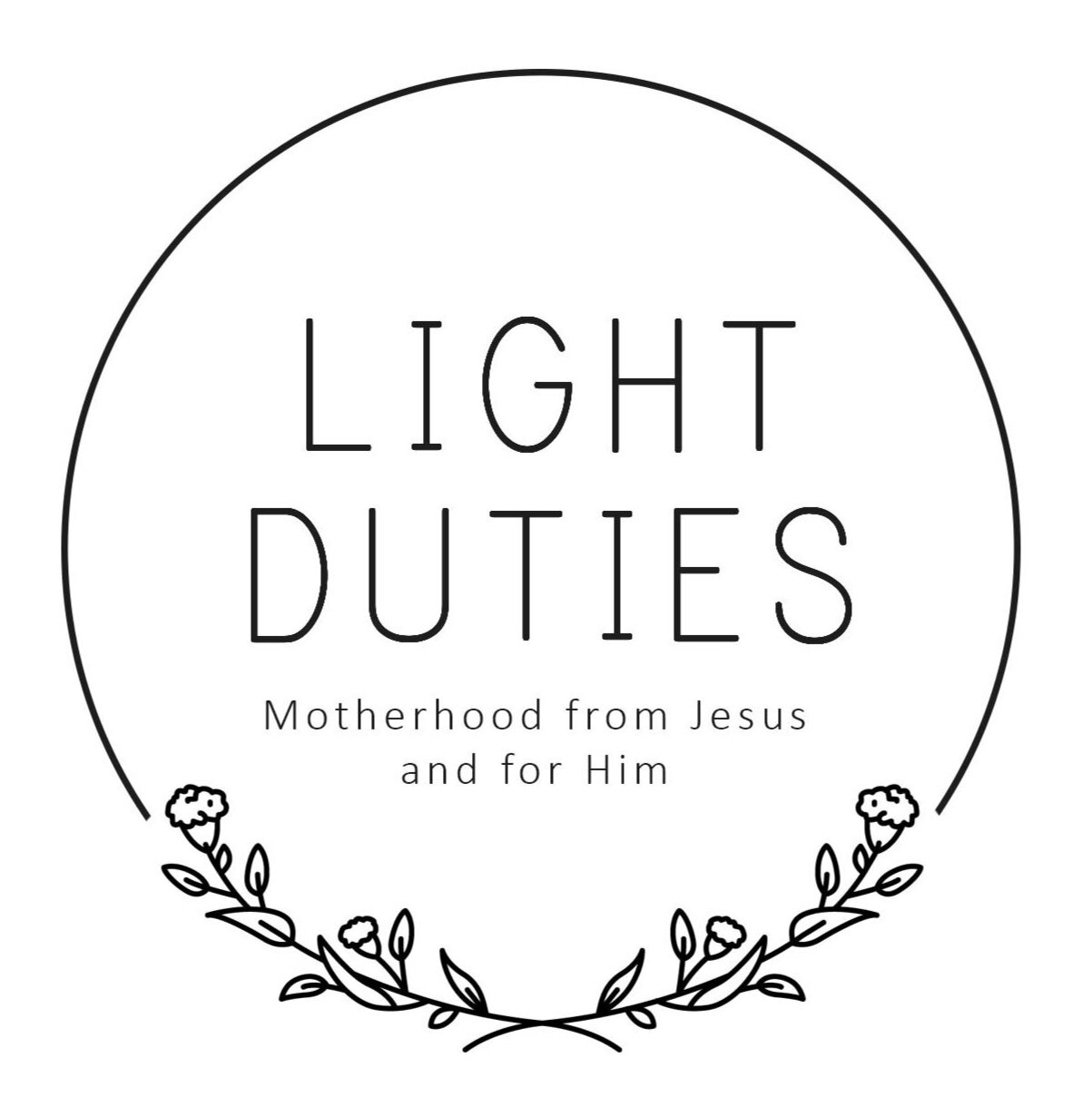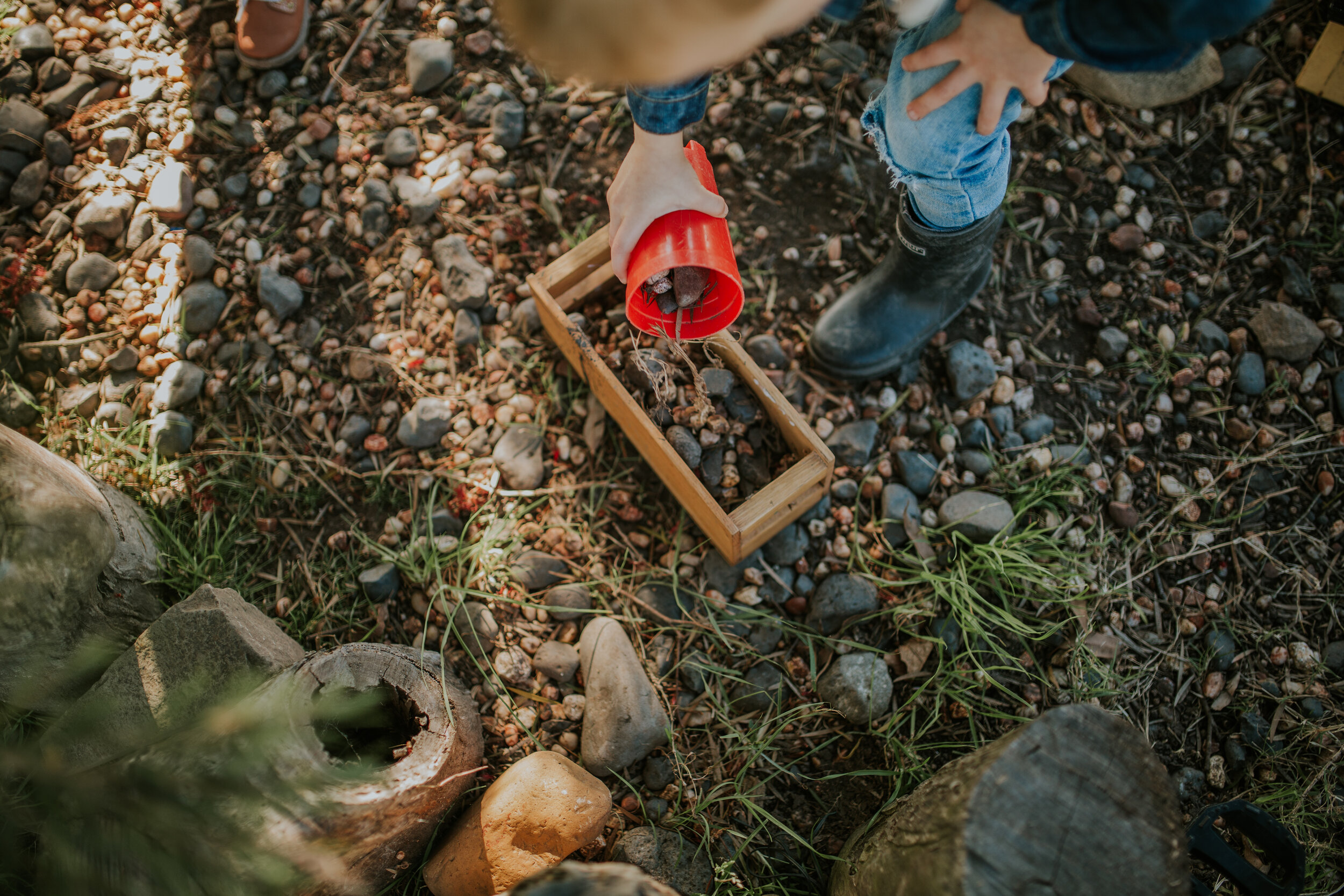#15. Hedging Our Bets
A lot of the trouble we have coming to terms with our duties as mothers is, at heart, a problem with what God says about marriage. That’s why we’ve spent a few weeks looking at the structural beams God has given us in marriage, the load-bearing skeleton of the whole. Without these in place, we end up with something smaller and more flimsy; a shack that might be better than nothing (as long as it doesn’t come down on anyone’s head), but where the buffeting elements are never far away. A place where fewer people can shelter and grow.
There is a supporting web of good provisions that even the most ordinary, but faithful, husband gives. A good man who’s doing his job, is like gluten in bread, giving an internal structure that allows the loaf to hold its own weight as it rises. He is not a topping, a condiment added to taste. Take him away, or if he removes himself, or fails to be godly, we lose something which makes the bread what it is meant to be. But sometimes it isn’t him who’s undermining the structural integrity.
However we get into our hard situations, it’s true that immature, ungodly men make being a godly wife much harder. And an ungodly wife makes it more difficult for a husband to be a godly man. We both have an enormous impact on each other’s capacity and joy in doing our respective duties. Our sin shrinks and distorts each other. We don’t resolve this difficulty by fortifying our separateness.
Feminism has taken all the achievements of a healthy multi-member household and claimed that a woman can do it all alone. We’ve forgotten how much is achieved when a man and a woman commit to being productive together for life. When a man is committed to one woman for a lifetime, and spends his strength to do her and their children good, she is free to cultivate space and relationships and culture that would not happen if she had to survive independently. There just isn’t the same capital (emotional/relational/economic/cultural/time) available to raise children, be hospitable, become deeply competent culture creators, to build atmosphere in a home, when we’re reduced to doing an extended family’s worth of work alone. Sometimes aloneness happens to us quite apart from our own choosing. It isn’t what we want, nor what we pursued. God gives rich stores of hope for these situations (more in future articles). But more often than not, that vision of self-sufficiency is exactly what we’re pursued. It’s the reason we have such a hard time dealing with passages like Titus 2. The Bible presupposes a mutuality which we actively resist.
Most of us have been encouraged to fight for our separateness and independence. We’re hedging our bets because we don’t trust men. We invest deeply in being able to fend for ourselves in case we do end up alone, even if we’re joined to someone who seems okay for now. We enter marriage on the defensive. On the stone steps of Petersham Baptist Church, before walking me down the aisle, my dear brother said, “Just promise me you’ll finish uni, Catherine”. He had good reason to be scared that I would end up alone, with dependent children, in the same situation we were raised in. His caution came from a place of love and protectiveness. After the wedding, I went to change my name on my university records and was reprimanded by the administrator, “You shouldn’t do that. Don’t come to me when you have to change it back again”.
Marriage is more than a sentimental attachment to someone we have sex with while we’re pursuing our own ambitions. If that is the idea we’ve still got by the time we welcome children (assuming we’ve been persuaded to have them at all), motherhood will be more complicated. We’ll end up resentfully asking questions about who should “give up” their plans for the sake of raising the kids. If we haven’t got a clear idea of what marriage is for, then children will be an intrusion. We’ll miss the point that, when God blesses us with them, children are the plan. Even if we realise that raising these children really matters, it’s harder to get the marriage ship docked for repair while we’re in the deep sea of parenthood.
If we don’t go into marriages with a commitment to lifelong, purposeful oneness, and with a trust that the other person is committed to the same, we’re disfiguring our families before they’ve even started. Giving ourselves in marriage is a calculated risk. It is possible that the person we’re marrying says all the right things, but is going to prove faithless. It happens. (That’s one reason why teaching teenagers about marriage needs to be more than, “Only marry a Christian and don’t have sex with them until you do.”). But dealing with betrayal—after it happens—is a very different thing from planning for it ahead of time.
Marriage and mothering choices are being shaped by our need to protect our exit strategy, should our marriage fail. The thing is, while we do this, we won’t be invested in the kind of way which makes for good marriage or good motherhood. We’ll be chipping away at the mortar while we’re trying to build. We’ll be in marriages that subsist, but don’t add value to the world. We will not be showing the glories of Christ and his church. We will not be bearing the divine image we were created and redeemed to display. We can’t give in to the wholehearted love and help a wife is called to if we’re busy securing our separate, independent life, just in case. We’ll be so busy preparing for Plan B that we won’t have the space available to fulfill our God-given duties in Plan A. The pull to self-sufficiency, within a functioning marriage, is completely contrary to what Scripture teaches us.
When a mother finds herself without a husband, it’s a sorrow, not a celebration. Is the Lord’s arm too short to work in, and through and for the single mum and her children? Or the woman who is working out how to love an immature husband? Of course not. But we can’t pretend that nothing changes without good men doing what the Lord tells them to, or when we fence ourselves off from them. We minimise the loss when we pretend it wasn’t worth anything.


